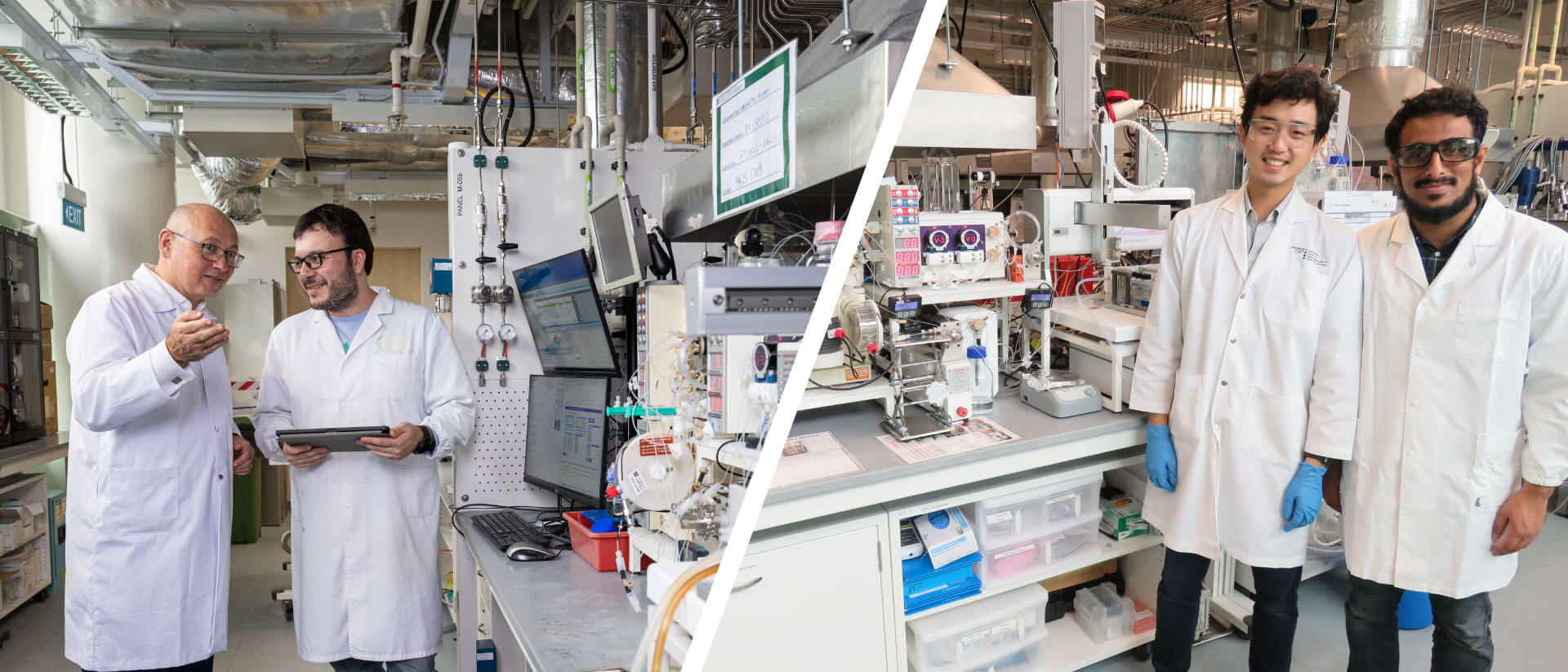Pharma Innovation Programme Singapore (PIPS)
The Pharma Innovation Programme Singapore (PIPS) is an industry-led platform that aims to synergistically and strategically bring together public sector research capabilities and domain expertise of the pharmaceutical industry to enhance the productivity and operational efficiency within Singapore’s pharmaceutical sector through leveraging novel manufacturing technologies and data analytics.
Building a Capability in Magnetic Resonance Methods for the Pharmaceutical and Agrochemical Sector within PIPS
The project is led by Dr Ann Chow, Prof Mick Mantle, and Prof Dame Lynn Gladden. This is a 2-year project that commenced in July 2025 and aims to develop specialised magnetic resonance imaging (MRI) and nuclear magnetic resonance (NMR) techniques in Singapore, facilitated by NTU and ISCE2 (A*STAR), via knowledge exchange from Cambridge. Prof Gladden’s Cambridge lab has pioneered the development and application of these techniques, traditionally used in medical research, to study heterogeneous catalytic reactions in MRI/NMR compatible reactors. The ultimate objective of the project is to apply these techniques to address specific challenges encountered in pharmaceutical drug production, namely, continuous drug production across operating scales.
Automated evaluation of environmental impacts of pharma manufacturing processes
Automated evaluation of environmental impacts of pharma manufacturing processes is led by Prof Alexei Lapkin. This is a 3-year project that commenced in July 2023 and aims to create best-in-class solutions for rapid evaluation of environmental impacts in the complex setting of the production of medicines. CARES has sub-contracted the research and development work on this project to its spin-off company Chemical Data Intelligence (CDI) Pte Ltd. CDI works with proprietary data, is set up to productise software for application in the chemical industry, and hence is ideally positioned to deliver this project. This work will combine data-driven modelling, first principles models, and hybrid models to create a predictive tool for life cycle impacts.
Completed PIPS projects are listed together with our other completed projects on this page.

